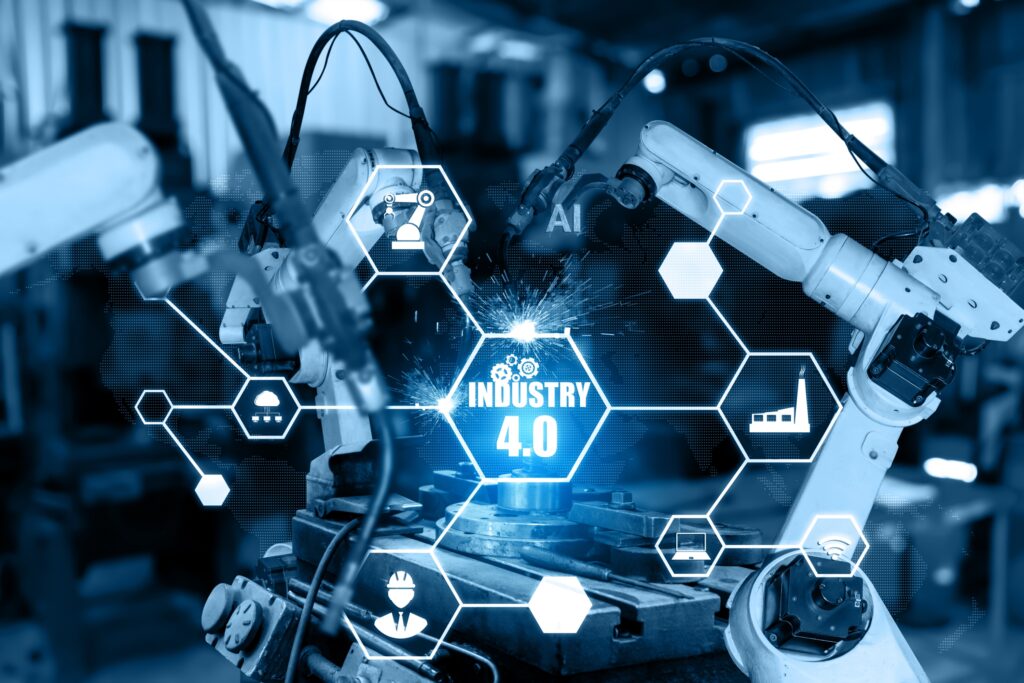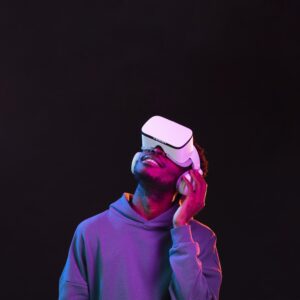The Future of Industry 4.0

Industry 4.0 | What is Industry 4.0?
Industry 4.0 is the fourth industrial revolution where machines are connected to the internet and able to sense, process, and respond to changes. Industry 4.0 is a concept that was first introduced in 2011 by German Chancellor Angela Merkel. It focuses on how digitalization will change manufacturing and production systems in the future.
Industry 4.0 Technology – The Rapid Advancement in Automation and Connectivity
The Industrial Internet of Things (IoT) is an extension of Industry 4.0 and refers to the interconnection between data generated by machines and systems in order to improve efficiency. It is a combination of sensors, software, actuators, networks, and intelligent devices that work together to provide feedback on performance while also allowing for remote monitoring of equipment.
Digital Transformation – How will it be Affected by Industry 4.0?
The digital transformation is a topic that is being discussed by many different professionals in the field. With the introduction of Industry 4.0, it will be interesting to see how the digital transformation will be affected by this new technology.Industry 4.0 is the fourth industrial revolution and it has been predicted to change not just production methods but also distribution channels and business models. It has already led to a lot of changes in manufacturing, including 3D printing which has resulted in significant cost savings for companies that use it.The digital transformation is happening all around us and with Industry 4.0, it will continue to change at an exponential rate.
Let us dig a little deeper and understand what Industry 4.0 involves.
 Model Simulation
Model Simulation
Model simulation is the process by which computer systems are used to simulate aspects of the real world in order to make predictions about future events that cannot be observed directly. Computer simulation allows one to go beyond dealing with abstract concepts by taking into account such factors as temperature, humidity and rainfall when studying climate change.
Cloud Technology
Cloud technology provides “smart” data centres, services and applications so that companies can achieve lower costs and operational efficiency. Industry 4.0 will allow customized production according to the individual customer requirements.
Augmented Reality
Augmented Reality (AR) is a technology that allows virtual information to be layered on the user’s view of the real world. This merging of two realities, or mixing of both physical and digital content, is called Hybrid Reality.
AR could be used in many industries including: business, education, entertainment and healthcare.One big use case for AR is the retail industry. Augmented reality so far has been used to improve a store’s layout, provide product information and more.
Industrial Internet of Things (IIoT)
Digitalization has changed the way we live, transforming our society as well as our working environment. One area that has undergone considerable change is the manufacturing industry. The Industrial Internet of Things (IIoT) is a driving force behind this transformation of manufacturing. IIoT facilitates management and the optimization of machines, increasing productivity and saving energy usage in factories. It also enables remote monitoring, predictive maintenance and remote troubleshooting which can prolong machinery’s life cycle by identifying problems early on before they result in catastrophic failures.
Artificial Intelligence
Artificial Intelligence is the simulation of thinking in a machine. It helps devices to recognize their environment and begin to take actions based on that environment to maximize achieving a goal.
AI can help promote safety and improve efficiency. For example, it can assist with driving, medical diagnoses, security operations, and customer service. AI can also help humans make decisions by providing recommendations or by taking over completely.
AI also has more potential to deliver real-time information than a human would be able to provide as it does not have limitations on communication speed or ability to process information efficiently.
Cybersecurity
Industry 4.0 is the current trend in manufacturing, with an emphasis on automation of factories and production lines, digitalization and less human involvement in the entire process. Cyber security in communications is one more important aspect of Industry 4.0
It’s one more important aspect to look into, because cyber security is a crucial part of it. Cyber security poses the most significant threats for critical infrastructures and our nation’s safety.
When it comes to tailoring a bespoke solution for your business, the need for trusted, experienced experts can not be overstated.
That’s why Z-Crossing Solutions are coming up with a custom solution that is designed specifically for your business needs. You can rely on our team of experts to make sure you get the best of our service that caters to all types of businesses. Check our services offered here.

